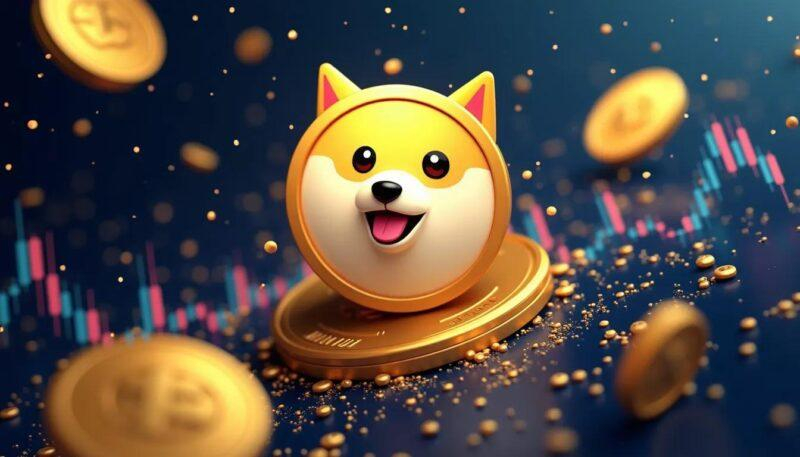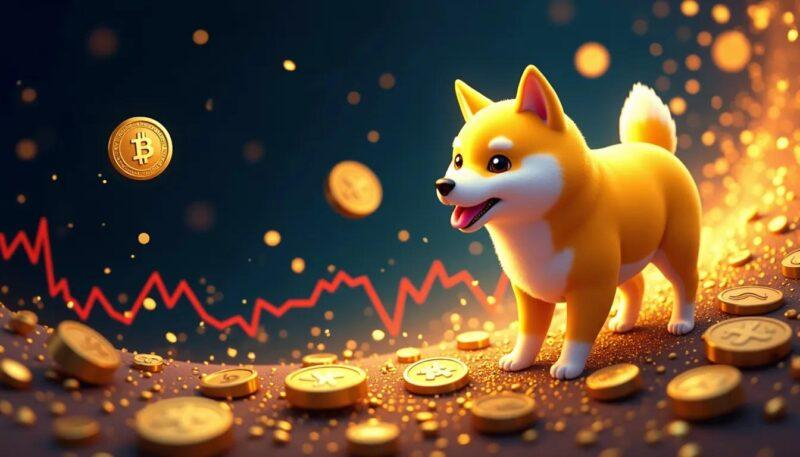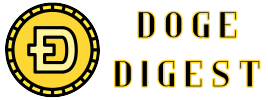In the ever-expanding universe of cryptocurrency, Dogecoin has carved out a unique place-part meme, part serious asset, and entirely captivating. As investors and enthusiasts seek alternatives beyond Bitcoin’s towering presence, the world of altcoins offers a dazzling array of choices, each with distinct features and communities. But how does Dogecoin truly stack up against these myriad alternatives? This guide takes a clear-eyed look at Dogecoin versus other altcoins, decoding their origins, functionalities, and market dynamics to help you navigate this lively crypto landscape with confidence and clarity.
Understanding Dogecoin’s Unique Origins and Community Appeal
Born out of an online joke and inspired by the popular “Doge” meme, this digital currency quickly transformed from a playful experiment into a serious player in the crypto space. Unlike many altcoins that aimed to revolutionize finance with complex technology or ambitious roadmaps, this coin carved out its own niche by embracing lightheartedness and community spirit. The founders didn’t just create a cryptocurrency – they sparked a movement fueled by everyday users who valued approachability over technical jargon.
What truly sets this coin apart is its inclusive and engaged community. From tipping strangers online to rallying behind charitable causes, enthusiasts foster a culture that thrives on fun and generosity. This grassroots enthusiasm has been a powerful driver of its adoption, proving that a strong, supportive network can be just as valuable as groundbreaking code. The coin’s use of inflationary supply, rewarding ongoing participation and spending, further encourages vibrant interaction rather than hoarding.
In comparison to other altcoins, which often emphasize technological superiority or niche applications, this coin focuses more on cultural resonance and user experience. Here’s a quick overview of its defining traits:
- Memetic origins: Rooted in internet humor and viral content
- Community-driven growth: Emphasizes engagement over speculative investment
- Inflationary economics: Designed to promote spending and tipping rather than scarcity
| Aspect | Typical Altcoins | This Coin |
|---|---|---|
| Origin | Technical innovation or ICO projects | Meme-inspired and community-born |
| Monetary Model | Limited Supply / Deflationary | Inflationary, encourages spending |
| Community | Often niche or developer-focused | Massive, playful, and charitable |
Examining Altcoin Diversity and Technological Innovations
While Dogecoin started as a lighthearted experiment, the altcoin landscape is remarkably diverse, showcasing an array of innovations designed to push blockchain technology into new territories. Many altcoins distinguish themselves through unique consensus algorithms, scalability solutions, and privacy protocols. These innovations not only cater to different use cases but also reflect the evolving demands of blockchain users, from finance to decentralized applications.
Among the diverse technologies, you’ll find:
- Proof-of-Stake (PoS) Mechanisms: Offering energy-efficient mining alternatives.
- Smart Contract Platforms: Enabling complex programmable agreements beyond simple transactions.
- Privacy Enhancements: Utilizing zero-knowledge proofs and ring signatures to secure user anonymity.
- Interoperability Protocols: Bridging separate blockchains for seamless asset transfers.
| Altcoin | Core Innovation | Use Case |
|---|---|---|
| Ethereum | Smart Contracts | Decentralized Applications |
| Cardano | Proof-of-Stake Consensus | Secure and Scalable Transactions |
| Monero | Privacy & Anonymity | Confidential Transactions |
| Polkadot | Cross-Chain Compatibility | Blockchain Interoperability |
Evaluating Market Performance and Volatility Trends
When dissecting the trajectories of Dogecoin alongside a myriad of altcoins, one cannot overlook the unique rhythm that governs their market performance. Dogecoin, originally born as a meme-inspired cryptocurrency, has exhibited a volatility pattern often tethered to social media trends and celebrity endorsements rather than conventional market indicators. In contrast, many altcoins derive their price fluctuations from technological developments, partnership announcements, and overall crypto market cycles, establishing a more systematic volatility framework.
Key volatility drivers for Dogecoin and altcoins include:
- Community engagement and viral social trends
- Technological roadmaps and updates
- Regulatory news impacting crypto regulations
- Liquidity and trading volume variations
Below is a snapshot comparison of average volatility percentages over the last six months, highlighting how Dogecoin’s erratic behavior contrasts with some popular altcoins:
| Cryptocurrency | Average Volatility (%) | Market Sentiment Influence |
|---|---|---|
| Dogecoin (DOGE) | 18.4 | High (Social media-driven) |
| Ethereum (ETH) | 12.7 | Medium (Tech & Regulations) |
| Cardano (ADA) | 10.3 | Medium (Tech upgrades) |
| Polkadot (DOT) | 14.1 | Medium-High (Ecosystem growth) |
Clearly, Dogecoin’s volatility often surpasses that of technologically driven altcoins, reflecting its susceptibility to rapid sentiment shifts. For investors and enthusiasts alike, understanding these patterns helps in crafting more informed strategies, balancing risk and opportunity within this dynamic landscape.
Assessing Use Cases and Real-World Adoption Potential
Dogecoin originally started as a meme-inspired cryptocurrency, but its simplicity and broad community appeal have carved a niche for it in microtransactions and tipping culture online. Its low transaction fees and fast confirmation times make it an attractive option for small, everyday transactions, though it lacks the advanced smart contract capabilities seen in some altcoins. Despite its playful origins, Dogecoin has found real-world adoption among content creators and online platforms seeking a decentralized, user-friendly payment method.
In contrast, altcoins like Ethereum, Cardano, and Solana often target more complex use cases such as decentralized finance (DeFi), non-fungible tokens (NFTs), and enterprise blockchain solutions. These platforms boast robust technology enabling programmable contracts, scalability enhancements, and diverse dApp ecosystems. However, this complexity sometimes comes at the cost of higher fees or slower adoption rates in casual payment scenarios. When evaluating potential adoption, it’s crucial to recognize how each altcoin serves distinct market needs beyond simple currency exchange.
Below is a concise comparison of Dogecoin and selected altcoins highlighting their core use cases and real-world utility:
| Cryptocurrency | Main Use Case | Transaction Speed | Adoption Strength |
|---|---|---|---|
| Dogecoin | Microtransactions, Tipping | ~1 min | Strong Community |
| Ethereum | Smart Contracts, DeFi | ~15 sec | Leading dApp Ecosystem |
| Cardano | Enterprise & Academic Use | ~20 sec | Growing Institutional Interest |
| Solana | High-Speed DeFi, NFTs | <1 sec | Rising Popularity |
- Dogecoin: Best for casual, low-value transactions backed by a lively user base.
- Altcoins: Tailored for advanced decentralized applications and scalable blockchain solutions.
- Adoption Factors: Community engagement, technical capabilities, and real-world utility drive widespread use.
Strategic Recommendations for Investors Navigating Dogecoin and Altcoins
Diversification is key when stepping into the volatile world of Dogecoin and altcoins. While Dogecoin benefits from a strong community and widespread recognition, altcoins often bring fresh technology and unique use cases. Investors should balance their portfolio by mixing well-established coins with promising newcomers to mitigate risks and capture growth opportunities.
Understanding the underlying technology and market trends is crucial. Dogecoin’s primary appeal lies in its simplicity and cultural relevance, whereas altcoins can range from DeFi platforms to privacy-focused tokens. Keep a close eye on project roadmaps, developer activity, and partnerships, as these factors often predict long-term viability better than price momentum alone.
| Investment Approach | Dogecoin | Altcoins |
|---|---|---|
| Volatility | Medium – Influenced by social media | High – Driven by innovation and news |
| Community Support | Strong and lively | Varies widely |
| Use Case | Transactional & tipping | Wide-ranging (DeFi, gaming, privacy) |
| Risk Level | Moderate | High |
Stay disciplined and set clear exit strategies. Given the fast-paced crypto environment, it’s easy to get swept up in hype. Use price alerts, take profits when targets are met, and don’t hesitate to cut losses. Combining technical analysis with fundamental research can provide a sturdier foundation for sound investment decisions.
Q&A
Q&A: Dogecoin vs. Altcoins – A Clear Comparison Guide
Q1: What exactly is Dogecoin, and how does it differ from other altcoins?
A1: Dogecoin started as a lighthearted cryptocurrency inspired by the popular “Doge” meme, featuring a Shiba Inu dog. Unlike many altcoins that aim to innovate blockchain technology or solve specific problems, Dogecoin’s original appeal was its simplicity, low transaction fees, and fun community. While many altcoins pursue advanced features like smart contracts or privacy enhancements, Dogecoin mainly focuses on ease of use and tipping culture.
Q2: Are altcoins just any coins other than Bitcoin?
A2: Essentially, yes. The term “altcoins” refers to all cryptocurrencies other than Bitcoin. Altcoins vary widely-they include well-established coins like Ethereum and Litecoin, as well as thousands of newer tokens with specialized functions. Dogecoin is one of the oldest and most recognizable altcoins but doesn’t always share the same technical ambitions as others.
Q3: How do Dogecoin’s technology and transaction speeds compare to typical altcoins?
A3: Dogecoin is based on Litecoin’s codebase, making its transactions relatively fast and cheap-often completing in under a minute with minimal fees. Many altcoins offer similar or even faster transaction speeds, especially newer ones using different consensus methods. However, some altcoins focus more on features than speed, so it varies widely.
Q4: Is Dogecoin a good investment compared to other altcoins?
A4: Investment suitability depends on your goals. Dogecoin has gained popularity and a strong community, sometimes driving speculative price surges. However, it lacks the robust development roadmap seen in projects like Ethereum or Cardano. Altcoins with innovative technology may offer higher long-term growth potential but can also carry higher risk. Diversification and research are key.
Q5: What drives Dogecoin’s community and adoption versus that of other altcoins?
A5: Dogecoin thrives on a culture of fun, tipping, and internet philanthropy-its community is famous for charitable donations and lighthearted memes. Many altcoins cultivate communities around technical innovation, governance, or niche use cases. Dogecoin’s approachable vibe makes it accessible but less focused on groundbreaking blockchain applications.
Q6: Can Dogecoin be used for practical applications like other altcoins?
A6: Dogecoin is primarily used for small-value transactions, tipping content creators, and as a gateway crypto for newcomers. Some altcoins provide smart contracts, decentralized finance (DeFi) capabilities, or privacy features, enabling more complex applications. While Dogecoin’s practical uses are somewhat limited, its ease of use and low fees keep it relevant.
Q7: How does Dogecoin’s supply compare to other altcoins?
A7: Unlike Bitcoin’s capped supply, Dogecoin has no maximum limit-it issues 10,000 DOGE every minute indefinitely. This inflationary model contrasts with many altcoins that have fixed or deflationary supplies, influencing scarcity and price dynamics differently.
Q8: What should someone consider when choosing between Dogecoin and other altcoins?
A8: Consider what matters to you most: community culture, technological utility, price volatility, and long-term potential. Dogecoin offers a fun, accessible entry point but less technical depth. Other altcoins might provide innovative solutions and diverse use cases but could be more complex and volatile. Your choice depends on whether you prioritize simplicity and community or cutting-edge features and growth prospects.
This Q&A aims to clarify the place of Dogecoin within the sprawling altcoin universe, helping readers navigate their crypto options with confidence and clarity.
In Conclusion
As the crypto landscape continues to evolve at lightning speed, Dogecoin and its altcoin counterparts each carve out unique spaces within the digital economy. Whether you’re drawn to Dogecoin’s playful origins and broad community appeal or intrigued by the innovative features of other altcoins, understanding their differences is key to making informed decisions. Ultimately, the choice between Dogecoin and the vast array of altcoins depends on your investment goals, risk appetite, and curiosity about blockchain technology’s future. Armed with this comparison guide, you’re better equipped to navigate the colorful world of cryptocurrencies-one coin at a time.




